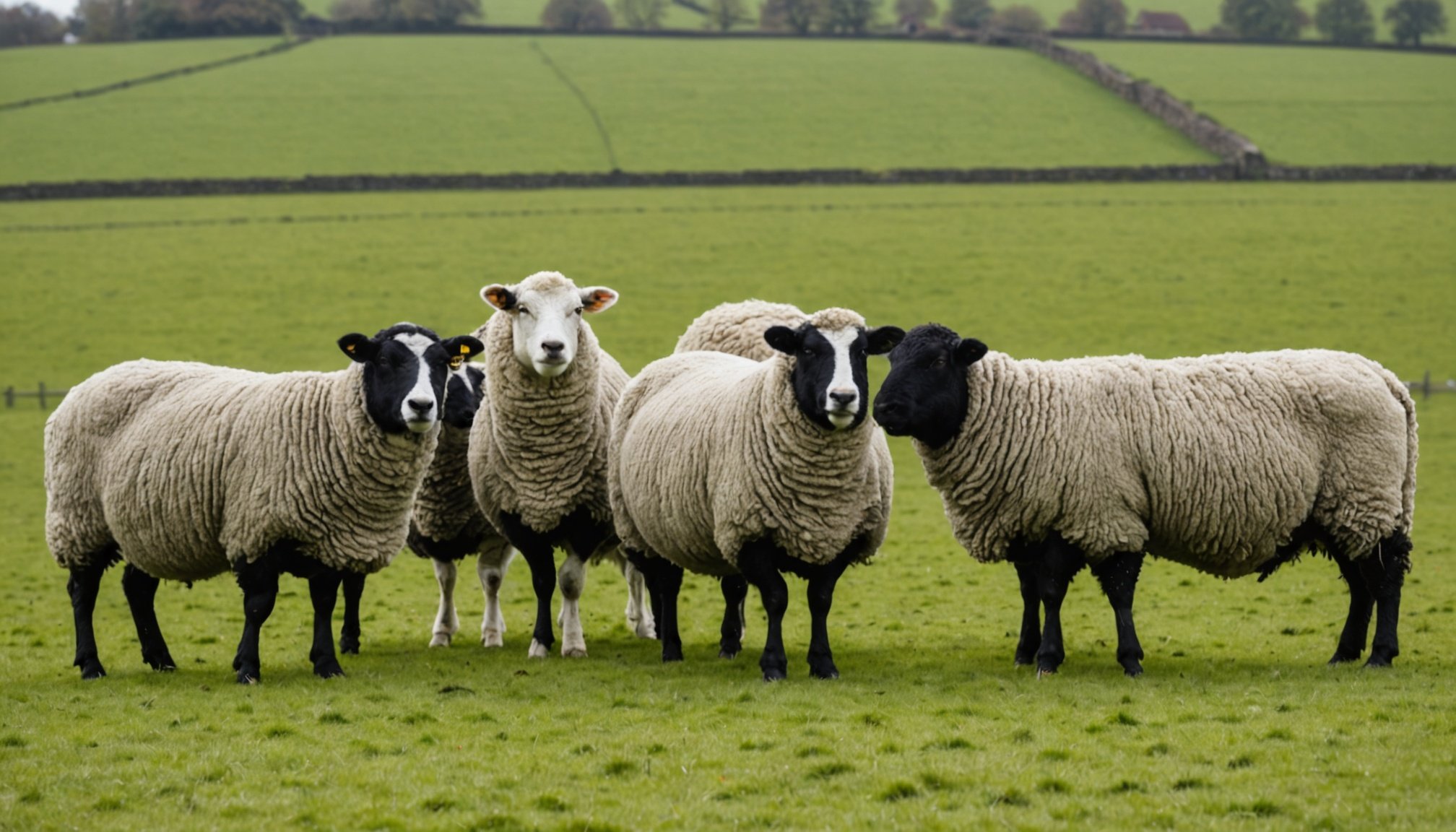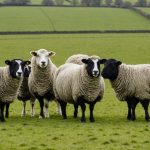Overview of Sustainable Wool Farming Innovations
Sustainable wool farming is gaining traction as both consumers and producers look for greener solutions. But what exactly does it mean? Simply put, it’s the adoption of methods ensuring wool production’s ecological footprint remains minimal. In the UK, farms are pioneering these eco-friendly practices, integrating innovative techniques that not only benefit the environment but also enhance the quality of the wool produced.
Wool production innovations here include integrating renewable energy sources, such as solar panels and wind turbines, to supply energy to farms. This not only minimizes carbon emissions but also represents a movement towards a sustainable future. Additionally, many farms are shifting to organic feed and improving pasture management to preserve soil health and biodiversity.
Also to see : Essential Features to Seek in Eco-Friendly Women”s Shoes in the UK: A Comprehensive Guide
Traditional wool farming often involves practices that could detrimentally impact the environment, like overgrazing, which leads to soil erosion and biodiversity loss. In contrast, sustainable farming emphasizes rotational grazing and soil conservation, making it a more eco-friendly choice. By promoting a balanced ecosystem, these practices can lead to less strain on natural resources.
In sum, the transformation within the industry highlights a shift toward balancing productivity with ecological responsibility. Through sustainable innovations, the UK is setting a benchmark, granting consumers reassurance and the option to support greener choices.
Topic to read : Essential Guide: How to Choose a Premium British Wool Sweater
Technological Developments in Wool Farming
Recent agricultural technology advancements have significantly transformed wool farming, ensuring higher yields and superior quality. Farming innovations, such as improved genetic selection processes, have allowed farmers to breed sheep that produce finer wool fibers, enhancing both the quality and market value of the wool.
One notable advancement is the adoption of precision farming techniques. These methods utilize GPS and satellite technology to optimize farming operations, ensuring sheep herds receive adequate nutrition and care. Precision farming allows for real-time monitoring of environmental conditions, significantly impacting wool production efficiency.
Wool processing technology has also seen revolutionary changes. Innovative machinery for shearing and sorting wool has increased the speed and accuracy of these processes, reducing human error and waste. Automation plays a crucial role here, streamlining operations and leading to more sustainable practices.
Data analytics is pivotal in this technological evolution. By analyzing large datasets, farmers can predict trends, manage resources more effectively, and make informed decisions. This integration of big data into wool farming helps in tracking sheep health, optimizing feed efficiencies, and minimizing environmental impact.
The shift towards sustainable farming practices is evident as these technologies reduce resource consumption and improve animal welfare, aligning with global sustainability goals.
Case Studies of Innovative Farms
Exploring innovative wool farms reveals remarkable sustainability success stories. These farms are pioneering eco-conscious farming techniques, offering insights into the future of agriculture.
Featured Farm #1: [Farm Name]
This farm showcases groundbreaking farming practices that prioritise sustainability. Their initiatives have significantly reduced environmental impact, benefitting both the local ecosystem and community. The farm’s success is quantifiable through reduced carbon footprint metrics and increased biodiversity on the premises.
Featured Farm #2: [Farm Name]
Renowned for its unique sustainable wool production methods, this farm employs state-of-the-art technology to enhance efficiency and reduce waste. The adoption of precision farming tools and renewable energy sources has proven beneficial, positioning the farm as a leader in eco-friendly practices. Their innovative work has earned them numerous accolades for their progress in sustainable agriculture.
Featured Farm #3: [Farm Name]
This farm is dedicated to community engagement and educational outreach about eco-conscious farming. It has increased the local community’s awareness of sustainable practices while maintaining high-quality wool production at competitive prices. Compared to traditional models, the farm’s success in integrating sustainability with profitability sets a commendable example. Engaging people has not only driven local support but also expanded the farm’s reach and impact.
Environmental & Economic Benefits
Incorporating sustainable agricultural practices yields significant environmental benefits. One of the most notable advantages is the reduced carbon footprint due to sustainable wool farming. By employing methods such as rotational grazing and organic feed, emissions are minimized, contributing to a healthier planet. Enhancing biodiversity is another positive outcome; sustainable practices foster diverse plant and animal life, which is crucial for maintaining ecological balance.
From an economic perspective, there are clear advantages for farmers who adopt these sustainable practices. Transitioning to eco-friendly farming can initially pose challenges, yet it frequently results in cost savings over time. For instance, using natural fertilizers reduces the reliance on synthetic products, decreasing expenses and improving soil health. Moreover, sustainable methods often attract premium prices for products, providing economic incentives.
Improved soil health is a vital component of sustainability. Healthy soil enhances water retention and nutrient availability, leading to higher yields and increased resilience to climate variability. Furthermore, the economic impact of sustainable practices extends beyond individual farms. Communities benefit through job creation in green sectors and increased agricultural efficiency. By prioritising these sustainable measures, farmers not only protect the environment but also ensure long-term viability and economic prosperity.
Interviews with Industry Experts
In the evolving field of sustainable agriculture, understanding the insights from industry leaders is key. As sustainable practices gain traction, hearing from sustainable agriculture experts provides a comprehensive look into the industry’s direction and challenges.
Insights from Leading Experts
Leading wool farming sustainability experts reveal that the future hinges on a careful balance between innovation and tradition. Experts emphasise that embracing change is critical, yet understanding local ecosystems and traditional methods remains vital.
Trends and Future of Sustainable Practices
Emerging trends suggest a shift towards regenerative techniques, emphasising soil health and biodiversity. Industry insights indicate that technology plays a pivotal role, with the use of advanced tools for monitoring environmental impact becoming more pervasive. This trend is expected to grow, offering new ways to measure and improve sustainability in wool farming.
Hurdles and Opportunities in Sustainable Innovations
However, the path to sustainable innovation is not without its hurdles. Experts note that financial constraints and knowledge gaps often hinder progress. Access to resources and the adaptation of new practices can be challenging for smaller farms. Yet, these hurdles also present opportunities. By providing targeted education and incentives, stakeholders can foster a more sustainable and resource-efficient industry. The key, experts suggest, lies in collaboration across the value chain to drive meaningful change.
Resources and Organizations Supporting Sustainable Wool Farming
In the UK, several organizations champion sustainable wool farming, providing support and resources to farmers aiming to embrace environmentally friendly practices. Notable among these are the British Wool Marketing Board, which assists in marketing and quality assurance for wool producers, and the Pastoral Alliance, which focuses on sustainable grazing practices that help mitigate climate impact.
For those transitioning to sustainable practices, a variety of sustainability resources are available. These resources offer guidance on topics ranging from biodiversity enhancement to regenerative farming techniques. Programs often include workshops, online courses, and printed guidelines to help farmers make informed decisions in their shift to sustainability.
Engaging with these organizations also opens opportunities for collaboration and knowledge sharing, crucial for fostering a community committed to eco-friendly wool production. Farmers can exchange insights, learn from each other’s experiences, and participate in group initiatives that promote sustainability within the industry.
Overall, the UK offers a robust network of support for those involved in wool farming, ensuring that sustainability becomes a core component of their operations. Embracing these resources can aid farmers in balancing economic viability with environmental responsibility, reinforcing the industry’s commitment to sustainable practices.











